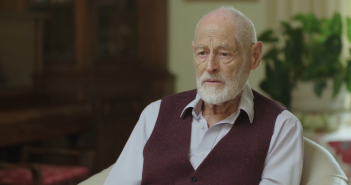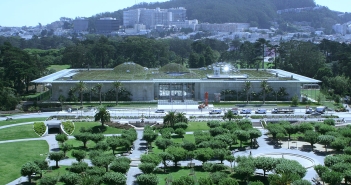Say it to me if you have something to confess
I was born on the wrong side of the tracks like Ginsberg and Kerouac
Bob Dylan, Key West (2020)
Notwithstanding my loathing for fundamentalisms of all strands, I have always preached from a gospel of love, or at least a form of reason that leads to moderation in the Public Intellectual Series.
Ideas about religion and the existence of God based on reason, such as that articulated by Thomas Aquinas, must yield to the facts as these emerge. The ideas contained in natural philosophy – with its harmony of the spheres – available to a medieval monk has been superseded by the discoveries of the Enlightenment that brought the hitherto unknown field of science. Yet, this yielded quantum physics that permits a layer of uncertainty, wherein the nature of an object may shift depending on one’s perspective.
The ‘uncertainty principle’ seems to have been anticipated by the Ancient Greeks, as Albert Camus explains in his essay ‘Helen’s Exile’ (1948):
Greek thought always took refuge behind the conception of limits. It never carried anything to extremes, neither the sacred, nor reason, because it negated nothing, neither the sacred nor reason. It took everything into consideration, balancing shadow with light.
This he contrasted with ‘Our Europe’ which:
off in the pursuit of totality, is the child of disproportion. She negates beauty, as she negates whatever she does not glorify. And through all her diverse ways, she glorifies but one thing, which is the future rule of reason.
We may find, therefore, an excess of reason breeding dogmatism that gives rise to unreason, or even scientism. Thus, the subtlety of the Greek mind, now reflected in the thinking of Jurgen Habermas, permits a space for religion in the public sphere, but certainly not the rule of religion, or a single moral vision.
An awareness of the limitation of reason, or really any one individual’s capacity to reason in a divinely inspired way is not, however, to dismiss the true nature of objective facts in a given situation. As Karl Popper (‘On the Sources of Knowledge and of Ignorance’ (1962)) points out:
belief in the possibility of a rule of law, of justice, and of freedom, can hardly survive the acceptance of an epistemology which teaches that there are no objective facts; not merely in this particular case, but in any other case; and that the judge cannot have made a factual mistake because he can no more be wrong about the facts than he can be right.
Therefore, dogmatism of all kinds – especially couched in religious terms – should be excluded, but we must also accept facts insofar as we are capable of ascertaining these, using the intellectual tools inherent in science and history that have served public intellectuals through the ages.
Extremism of Our Times
Where divine revelation is treated by true believers as factual is truly dangerous. Thus moral philosopher Professor John Finnis assumes the existence of one God ‘the Almighty’ to be self-evident, leading to a fixed moral view that does not allow for diversity, or even mild eccentricity, within our private lives.
In recent writings, Finnis illustrates a dominant extremism of our time. Marriage is for him exclusively between a man and a woman. Therefore, gay marriage is not a good. Furthermore, marriage involves sexual congress, which has as its aim the production of children. Not sex for the sake of having sex, but only for conception. Thus, Finnis considers homosexual congress and sex outside marriage as intrinsically shameful, immoral and harmful.
Some argue that he derives such normative conclusions about homosexual relationships from factual premises of heterosexual physical contact. Moreover, in the civilised world, many of the practices Finnis sanctions are considered by homosexual and heterosexual couples both within and outside of marriage as part of normal sexual congress and behaviour.
The issue highlights how sexuality has warped contemporary Christianity, negating more important issues around the real suffering of human beings in this world, a concern that Pope Francis is at least beginning to address. In his latest encyclical Fratelli Tutti (‘All Brothers, 2020) Francis condemns, ‘a concept of popular and national unity influenced by various ideologies … creating new forms of selfishness and a loss of the social sense under the guise of defending national interests.’
Shaming Culture
The advent of shaming culture as opposed to a justice culture, involves the demonisation of others and is a reversion to social primitivism, akin to burning witches at the stake, or René Girard’s idea of the reconciliatory victim or scapegoat. It is allied to a rise in Populist hysteria and religious mania.
The leading contemporary Jewish philosopher in the U.K., Jonathan Sacks, in a balanced way seeks to exonerate religious belief from its critics. In God’s Name (2016) is a defence of religion in terms of the values it produces. Sacks rails against extremism, a theme he revisits in Morality (2020), where he outlines positive religious values, including a focus on dignity, associative levels of responsibility, community and a sense of public service and the common good.
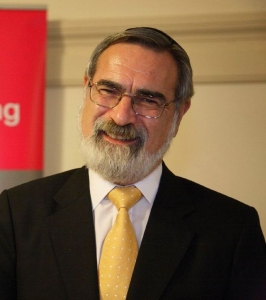
Jonathan Sacks
Christian jihadism encompasses such forays as the invasion of South America by Spanish Conquistadors and the Crusades, leading to mass slaughter and the destruction of indigenous civilizations. In modern times the Blairite justification, couched in Christian terms, for the war on Iraq was also used to mask narrow self-interest in oil.
Sacks equates altruistic evil with the thinking within the neoconservative group, wherein we are considered good and those outside our group are evil. This leads to the arrogant assumption that we are doing it for ‘their’ own good, killing multitudes will pave the way for democracy.
Crusades, whether modern or ancient, are invariably cloaked in the garment of religious ideology, but are really about resources and the ruthless pursuit of self-interest. They also still permit mass murder. The connection between religion and unbridled capitalism has long been evident, and is, alas, woven into the fabric of institutionalised religion.
All of these examples are truisms historically about the search of the Church and its believers or fellow travellers for gold and money – the Kingdom of Mammon, as opposed to the Kingdom of Heaven.
Both Christopher Hitchens, and indeed Richard Dawkins, have written extensively about the new forms of religious extremes we are witnessing, with the finger of blame primarily being pointed at Islam. That religion of course provides graphic examples of brutal beheadings, mass executions, stoning to death for adultery, planes hitting the Twin Towers, as well as the murder of journalists. All of this is unconscionable, but much of the rage can be traced to neo-imperialism in the Middle East, culminating in the invasion of Iraq. Christopher Hitchens’s greatest intellectual error was to support the Bush-Blair invasion of Iraq.
Power Vacuum
So what is the root cause of Islamic extremism and Evangelical and Catholic extremism?
Blame is rightly attached to the misguided and illegal wars in Iraq, and going all the way back to the 1920s, the creation of client regimes in the Middle East. The unintended consequences of the occupation of Iraq led to a power vacuum in Syria, which gave an opportunity to well organized religiously inspired militants.
This, however, was the culmination of long-term trends within Islam, wherein successive generations had been radicalized by preachers who exploited a loss of identity in the face of Western consumerism, segregation and enduring poverty.
In Marxist terms, religious fundamentalism can be traced to growing disparities of wealth and structural inequality, as well as a lack of opportunities to gain a rounded education, with all too great an emphasis on technical or scientific education for economic advancement, as opposed to a broad liberal education that inculcates critical thinking.
Primarily, however, this extremism speaks of a need to belong to a cause, leading to belief in something ethereal, no matter how ludicrous. Belief in an afterlife defines people’s existences and justifies, as far as they are concerned, even self-immolation.
But the secularist response in France especially – under the aggressive application of laïcité – to ban or regulate the wearing of the burka or nijab, upheld in the European Court of Human Rights in the SAS case, only appears to inflame the issue. This is really little more than a sideshow to a wider collapse in values.

A Group of Women Wearing Burkas. Afghanistan women wait outside a USAID-supported health care clinic, Afghanistan, 2003.
As the wheels come off the economic system as we know it, and where people are searching for words and expressions to convey their understanding of the withering of societal bonds, extremist Christianity has stepped into the void to provide solace.
In the United States, at least, we are seeing an unholy synergy developing between Evangelical Christians and right-wing Catholicism. Far-right demagogues, led by Trump, have articulated a view that ‘our’ country is being overrun by immigrants and that the dominant ethnic group must ‘take back control’ from a phantom intellectual Marxism, liberal elites, or straight socialism – all emanating from the decadence of the mixed race cosmopolis.
This a descent into the racist abyss, where those we disagree with are scapegoated and targeted. It is a product of a dangerous dualistic mode of thinking, which Sacks identifies with a need to define God in relation to the Satan residing in others. This is the demonisation of those we disagree with, which is also evident in social media vilification.
Real Suffering
The suffering expressed through religion is the genuine sigh of oppressed creatures. In Marxist terms, the abolition of religion as the illusory happiness of the people is the demand for their real happiness. To call on them to give up their illusions is to call on them to give up a condition that requires illusions. The criticism of religion is, therefore, in embryo, the criticism of that vale of tears of which religion is the halo.
In a world of poverty, of diminishing resources and human degradation the appeal of an afterlife is obvious. What the Christian far-right in the United States and elsewhere offer is the establishment of the Kingdom of Heaven on earth, which involves a veneer of protection against the unbelievers. This leads to isolation of the righteous few in gated communities, segregating the chosen people from the disaster they have inflicted on others.
The pandemic has led to the recrudescence of a millenarian ethos and sense of doom that is creating a society not dissimilar to that found in Margaret Atwood’s Handmaid’s Tale, enforced against men and women alike.
The philandering Donald Trump is merely a front man for larger interests, who control the puppet on the chain. He dances to the beat of the dark money of the Republican Party, appointing the Amy Coney Barrett to the Supreme Court was his parting gift.
End of Days
Another hallmark of the present distorted religious influence of the neoliberal world order is the denial of climate change, and the employment of post-truth reasoning – the denial of objective facts underpinning the rule of law as Karl Popper saw it – to justify this.
The Italian physicist Carlo Rovelli, in his simple and illuminating Seven Brief Lessons on Physics, closes his account, with a reflection on how centuries of discoveries affect an understanding of ourselves. While generally positive, one stark passage stands out for its relevance to the challenge of addressing climate change.
I believe our species will not last long. It does not seem to be made of the stuff that has allowed the turtle, for example, to continue to exist more or less unchanged for hundreds of millions of years; for hundreds of times longer, that is, than we have even been in existence. We belong to a short-lived genus of species. All of our cousins are already extinct. What’s more, we do damage. The brutal climate and environmental changes which we have triggered are unlikely to spare us. For the Earth they may turn out to be a small irrelevant blip, but I do not think that we will outlast them unscathed – especially since public and political opinion prefers to ignore the dangers which we are running, hiding our heads in the sand. We are perhaps the only species on Earth to be conscious of the inevitability of our individual mortality. I fear soon we shall also have to become the only species that will knowingly watch the coming of its own collective demise, or at least the demise of its civilisation.
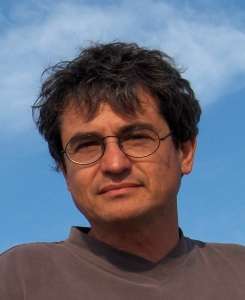
Carlo Rovelli
This exemplifies the difference between a man of science and objective facts, and those of a fundamentalist bent that place mankind atop the pyramid of Creation.
More terrifying than where Ravelli places us in the grand scheme is the end of days preacher who cannot countenance that we may indeed be just an irrelevant blip on this Earth, but instead sees the Earth as something created for us to plunder and exploit.
Cognisant of this threat, Noam Chomsky recently claimed that the Republican Party is the ‘most dangerous organization in world history’ He has deliberately corrected many interviewers who mistakenly stated that in fact he said it was the most dangerous organization in the world today.
Chomsky also mentioned in a BBC Newsnight interview that there has to be connection between the denial of science, and active attempts to undermine it, with the belief of nearly 40% of the American public that the Second Coming will occur by 2050.
Why would a deluded mind bother saving life and civilization, when it is prophesised that it will all be over soon? Christian End of Day’s logic, or lack thereof, is not so prevalent in agnostic Europe at present, but the breakdown of the social order through the austerity shock doctrine, and now the coup de grâce of the pandemic, leaves the continent exposed to those same forces, which may be articulated in an equally millenarian scientism that sees human beings as vectors of disease.
Loss of Meaning
In a 2004 essay Václav Havel foresaw much of what we now find in a piece called ‘What Communism Still Teaches Us,’ describing ‘supposed laws of the market and other invisible hands that direct our lives.’ There remains an abject lack of humanism in neoliberal politics and society, comparable in certain ways to Communist totalitarianism, not least in the brainwashing of the young through solipsistic social media.
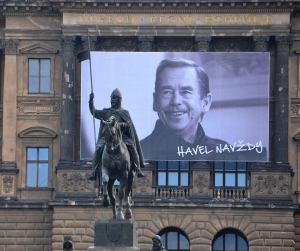
With the loss of religious forms, however, many living in modern technocratic societies experience a loss of meaning, and even a moral void. The social structure of religions fostered close relationships and inculcated a sense of community, as well as charity, the protection of human dignity and a commitment to public service. The Bible injuncts kindness towards strangers, and to do unto others as you would wish them to do to you, which also derives from Aristotelian philosophy.
To rectify contemporary problem such as poverty and environmental degradation, undoubtedly we need to shift from a conception of ‘I’ to ‘we’ as Sacks argues.
In The Godless Gospel, Julian Baggini also calls for a form of religion shorn of hatred for our age, where we develop personal and social goods through deeds not pious words. Through this we may realise our best intentions and develop empathy and compassion, a commitment to personal humility and an obligation and commitment to the truth. Above all we should try and do as little harm as possible he asserts.
All of these are good values that Christianity may teach to those of a secular persuasion lacking in moral clarity.
Thus from a secular perspective, Jürgen Habermas understood how religion engenders social integration, and is the basis for communicative action. As far back as 1978 he argued, from an agnostic perspective, for the necessity of religious ideas to humanise society. Those of faith must learn to communicate reasonably, which means the renunciation of violence and extremism. We must learn to talk and communicate our differences, agreeing on facts to ground the rule of law.
Pope Francis
Pope Francis’s experiences in the barrios of Buenos Aires appears to have shaped an empathy towards those afflicted with extreme poverty and subjected to degradation. He preaches tolerance, engagement and social and economic justice. This has largely been stripped of the condemnation of sexuality and sexual expression evident in his predecessor John Paul II.
Let us hope the liberation theology that is intrinsic in Francis’s message is not tainted by the dark money of the Vatican, and he does not go the way of John Paul I, or ‘God’s Banker’ Roberto Calvi, found hanging from Blackfriars bridge in 1982, just outside the site of my Chambers.
Christian socialism is a potentially vital force if it reflects the values of what Philip Pullman calls that great man Jesus, but not the values, as he equally presents, of that scoundrel Jesus Christ. This latter is a distortion of New Testament values, dedicated to the accumulation of capital, a lack of compassion and political manipulation.
If inequality grows any further – amid ever-greater accumulations of wealth – then neoliberalism may well give way to neo-feudalism. Viewed in this regard it is easier to understand the potential for an alliance between church and capital in subjugating the masses. The Book of Genesis sanctions man’s dominion over the earth which has led to a scorched earth approach towards environmental regulations that will ultimately impoverish us all. For too long Christianity has married the exchange of goods with the exchange of gods.
Scopes Trial
In parts of American Darwin’s Theory of Evolution is accorded equal weight and validity as Creationism in schools. Children are taught that the world was created by God the Almighty in the space of seven days.
It’s been a long time coming. In the Scopes Trial of 1925 – where a High School teacher was put on trial for teaching Darwinism – the legendary American attorney Darrow anticipated what happens when a society abandons reason altogether.
Can’t you understand? That if you take a law like evolution and you make it a crime to teach it in the public schools, tomorrow you can make it a crime to teach it in the private schools? In addition, tomorrow you may make it a crime to read about it. Soon you may ban books and newspapers. Then you may turn Catholic against Protestant, and Protestant against Protestant, and try to foist your own religion upon the mind of man. If you can do one, you can do the other. Because fanaticism and ignorance is forever busy, and needs feeding. And soon, your Honor, with banners flying and with drums beating we’ll be marching backward, BACKWARD, through the glorious ages of that Sixteenth Century when bigots burned the man who dared bring enlightenment and intelligence to the human mind!
In a period of declining belief in a broad liberal education, and where the art-repeneur has taken over from true artists, there is a desperation for something to cling on to, whether Creationism, neoliberalism or even scientism. We are living in an age of pervasive ignorance, which can be traced to our putative higher educational institutions, where students are taught to believe and comply. Or as Foucault would have it, punishment is becoming internalized through control vectors.
Lost in all of this is the message of Christian socialists such as Pope Francis, Sacks, and even their ideological fellow-traveller Habermas. This is a form of Christian decency that reflects the needs of human beings battling for survival in an increasingly hostile environment, where adequate nutrition, shelter, health care, education, housing and even dignity are denied.
Thus organised religions appear to be experiencing an existential battle between the neoliberals and Christian socialists. Exclusionary family values that are a hallmark of religious neoliberalism conceal a corporate existence and controlled sexuality. Its tenets are designed to diminish any radicalisation among the young.
But let us hope a new-found empathy with the Wretched of the Earth can emerge, in Catholicism at least under Pope Francis, and perhaps other Protestant more tolerant faiths. This would reflect the moderation and human decency of public intellectuals in this series such as Jürgen Habermas, Albert Camus, George Orwell and Edmund Burke, all of whom in their own ways rejected the moral absolutes that lead to human degradation.
No Time to be Making Enemies
On his deathbeds the great Enlightenment intellectual Voltaire (1694-1778) was asked by a priest in attendance to renounce the devil. Voltaire considered this advice, but approaching the pearly gates he decided against doing so: ‘This is no time,’ he said, ‘to be making new enemies.’
At this stage in our history it is important to be open to all belief systems, including Christianity in spite of its diabolical history. Christianity, and other religions, must confront a dark past, but can provide moral guidance in the face of a culturally dominant neoliberal cost-benefit analysis of life. Dogmatic secularist should concede that there are lessons to be drawn from religions. These may help generate a genuine brotherhood and sisterhood among human beings to confront the real evil in this world.


